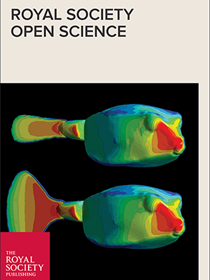Article in Royal Society Open Science: Modulating yaw with an unstable rigid body and a course-stabilizing or steering caudal fin in the yellow boxfish (Ostracion cubicus) | Eize Stamhuis
Authors: Pim G. Boute, Sam Van Wassenbergh and Eize J. Stamhuis.
Journal: Royal Society Open Science, Volume 7, Issue 4.

Abstract
Despite that boxfishes have a rigid carapace that restricts body undulation, they are highly manoeuvrable and manage to swim with remarkably dynamic stability. Recent research has indicated that the rigid body shape of boxfishes shows an inherently unstable response in its rotations caused by course-disturbing flows. Hence, any net stabilizing effect should come from the fishes' fins. The aim of the current study was to determine the effect of the surface area and orientation of the caudal fin on the yaw torque exerted on the yellow boxfish, Ostracion cubicus, a square cross-sectional shaped species of boxfish. Yaw torques quantified in a flow tank using a physical model with an attachable closed or open caudal fin at different body and tail angles and at different water flow speeds showed that the caudal fin is crucial for controlling yaw. These flow tank results were confirmed by computational fluid dynamics simulations. The caudal fin acts as both a course-stabilizer and rudder for the naturally unstable rigid body with regard to yaw. Boxfishes seem to use the interaction of the unstable body and active changes in the shape and orientation of the caudal fin to modulate manoeuvrability and stability.
More information
More news
-
15 September 2025
Successful visit to the UG by Rector of Institut Teknologi Bandung
